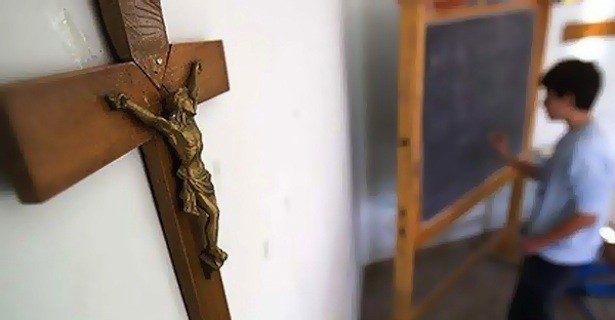Faith-based schools have an important role in the future, but we have to stand up for them, writes Michael Kelly
The religious landscape in Ireland has changed dramatically in recent decades. Perhaps nowhere was that more evident than in the contrasts between the visit of St John Paul II in 1979 and that of Pope Francis last year.
The Argentine Pontiff – many people observed – was visiting a different Ireland to that of the late-1970s. It’s a truism, of course – but what does that change say to the future of Catholic schools and the place of religious education in a pluralist culture? What does it even mean to say that a country is pluralist? Is it the same thing as secular? Can the state ever be truly neutral when it comes to values in education?
These are some of the questions that will be explored at a major national conference on Catholic education hosted by The Irish Catholic newspaper in Dublin next month.
Catholic schools in Ireland are under pressure as never before. A number of Government measures have sought to restrict the rights of Catholic schools in particular when it comes to giving priority to the admission of children from that background.
Symbols
At the same time, many people fear that recommendations on inclusivity would effectively neutralise the faith-based character of Catholic schools and relegate important symbols of the faith and rituals.
Catholic schools – it is argued by some – are divisive and exclusive. Meanwhile, schools in the Catholic sphere have been to the forefront in integrating the ‘new Irish’ and children from a variety of faith backgrounds.
There is no question that there is a need for more pluralism when it comes to education. The religious landscape has shifted dramatically in Ireland and some parents now wish to have their children educated outside of the context of a Catholic ethos. Successive governments have dragged their heels on this whilst at the same time seeking to blame the Church and stakeholders in Catholic education for slow progress on divestment.
Church leaders have been courageous in leading the process of divestment, but time and again local communities have underlined the importance of the Catholic school in their locale and the paramount principle of parental choice in education.
The fact is that Catholic schools remain a hugely popular choice for parents – even for those who many not regularly practice their faith. It is also noteworthy that many parents from a non-Catholic background also freely choose a Catholic education for their child because of the holistic ethos.
Catholic schools at their best see the individual child as made in God’s image and likeness rather than part of an exam-driven production line. But, Catholic education also understands that academic achievement – not an end in itself – is the route to successful outcomes later in life for people who have attended Catholic schools.
The conference is a chance to grapple with some of the real dilemmas facing the Catholic community”
The paradox of a lot of the debate in Ireland is that Catholic schools aborad have never been more popular. In highly-secularised cultures like Britain, the competition for places in Catholic schools in fierce.
Against this backdrop, the conference ‘Can we keep faith in Catholic schools within a secular society?’ will look at some of the challenges and opportunities facing the Catholic sector both North and South. It will explore how the Christian community can help schools to be authentically Catholic. The conference will also look at contentious issues around the place of sacramental preparation in school – crucially, should Holy Communion and Confirmation preparation be moved out of the classroom?
Speakers include Bishop of Meath Dr Tom Deenihan who will address the question ‘what future for Catholic schools?’. Former architect of Pope Benedict’s successful 2010 visit to Britain Prof. Francis Campbell of St Mary’s University in London will look at how we keep Catholic schools true to their ethos and mission.
Paul Barber from the Catholic Education Service of England and Wales will look at the place of faith-based schools in a pluralist culture. Natalie Finnigan from the Archdiocese of Glasgow will user her experience to expand on the role of Catholic schools in shaping a more just society.
Bairbre Cahill – who has vast experience in catechetics – will explore the question of sacramental preparation and ask what is best for handing on the faith to future generations.
This conference is an unmissable opportunity for anyone interested or concerned about the future of Catholic education in Ireland. Crucially, it is an opportunity to explore some of the deeper questions with a range of experts in the field.
Bringing together decision-makers, stake-holders, teachers and parents it is also a unique opportunity to network and grapple together with some of the real dilemmas facing the Catholic community as we work together to ensure that there will be faith in the future.
I hope you will join us in this exciting endeavour.
‘Can we keep faith in Catholic schools within a secular society’ will be held on Thursday, October 24, 2019 at the Clayton Hotel, Ballsbridge, Dublin 4. Early bird registration is now open with a special offer of only €50 (lunch and breaks included) until September 30.
Places are limited, but you can reserve your seat now on www.irishcatholic.com/shop emailing events@irishcatholic.ie or calling 01.687.4028 (00.353.1.687.4028 from the North).


 Michael Kelly
Michael Kelly